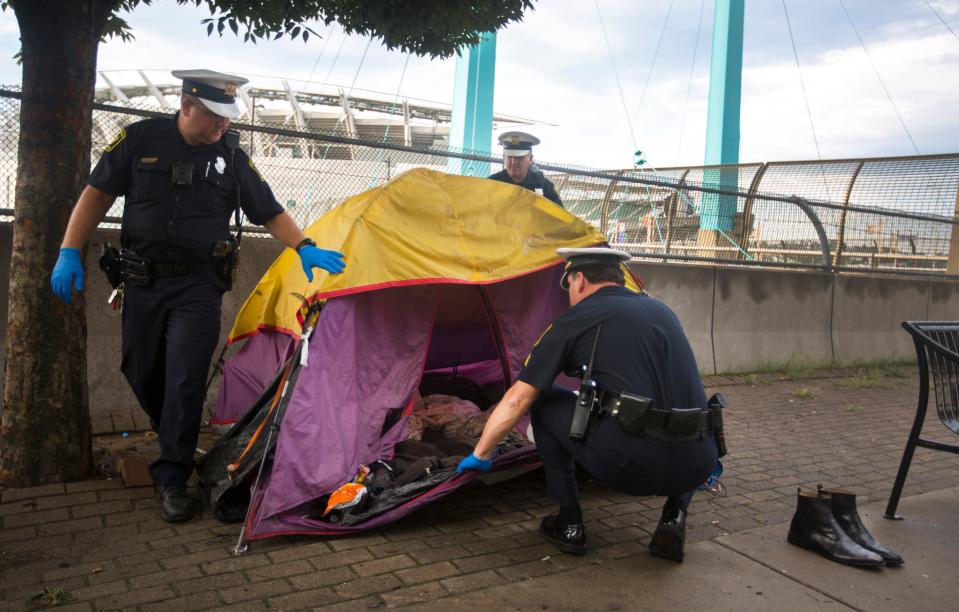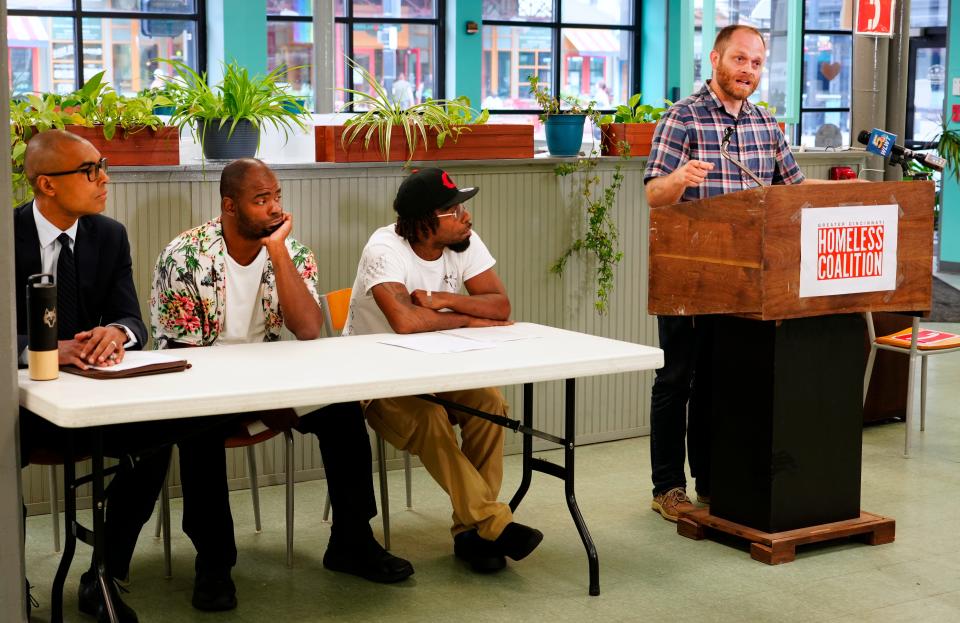Three people who once lived in a homeless encampment on Third Street in downtown Cincinnati — before the city evicted them six years ago — praised a new agreement that allows encampments when there is no available shelter.
Leon “Bison” Evans, one of the 2018 camp leaders, said Tuesday he wants people to know that no one living at the camp was there by choice.

“I apologize,” said Evans, 38 and still homeless. “But I had to do what I had to do. I’m glad there is a solution.”
And hopefully, he added, “it will do a little more for the homeless.”
Six years ago, the city of Cincinnati forced Patrick Chin and dozens of other people living in a tent encampment Downtown from what they considered their homes.
The move sparked a debate over how unsheltered people are treated and led to two lawsuits, including one in federal court that concluded earlier this month. The city settled with Chin and the Greater Cincinnati Homeless Coalition for $83,000. That money will be shared by the coalition and Chin.
Chin now lives in Alaska. Many of the people who lived in the camp, once nearly 100, have since died, Evans said.
The settlement led to a new written police policy for “interacting with individuals residing in homeless encampments,” aimed at better treatment of people experiencing homelessness.


“The City recognizes that imposing criminal penalties for sitting, sleeping, or lying on public property on people who are homeless and do not have access to shelter is prohibited by the Eighth Amendment,” the city’s new policy reads. The Eighth Amendment to the U.S. Constitution prohibits cruel and unusual punishment.
The biggest changes: City policy now says that before police can respond to a homeless encampment, an outreach service provider must have made contact with the individuals living there and shelter space must be available and offered. Under previous policy, a complaint about an encampment had to be filed with a police supervisor.
Under the new policy, if both of those things happen and someone refuses to move, he or she could be cited for trespassing.
Possible criminal violations, such as illegal drug use or physical violence, can be dealt with immediately by the police.


Attorney Bennett Allen, who represented the Greater Cincinnati Coalition for the Homeless in the settlement, called the new policy a “huge victory for social justice.”
Can the encampments return to Downtown? They’re still there, says Josh Spring, executive director of the coalition, just hidden. Spring said that as word spreads among people living in camps, there could be a return of visible locations if shelter beds are not available, which is often the case.
“I don’t know if we’ll see visibly large camps,” Spring said. “The question is, ‘What is the city going to do?’ “The answer, which he has long been pushing for, is for the city to build and encourage more affordable housing,” he said. Open-air encampments bring the problem to the forefront, he said.
Cierra Burgan, 38, who also lived in the Third Street encampment and has since found housing, said she feels like Cincinnati’s homeless population continues to be treated unfairly. But she is also hopeful that the settlement will change that.
As for Allen Howard, 43, who also lived in the encampment and is homeless: “I just want affordable housing for everyone who needs it.”
This article originally appeared on the Cincinnati Enquirer: Three people who have experienced homelessness praise the city’s new policy.







